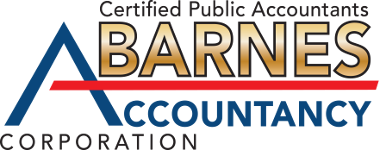We are for sure seeing a “turn signal” of sorts around here as 2022 barrels its way onto the horizon.
How about you? Are you beginning to start thinking about next year? The turn of the seasons means a lot of different things to many people, but it seems just yesterday that we were doing summer things … and now here we are, getting closer to winter.
For us here at Barnes Accountancy Corporation, our turn signal involves making year-end tax maneuvers on behalf of our proactive clients and keeping an eye on Congresspeople — who always somehow seem to get much more active at the end of the year.
(And if you want to talk year-end tax-saving moves and strategies for YOU, we’re right here:
714-541-4338 )
There’s a new infrastructure bill headed to the President’s desk, and when it becomes law, it WILL impact your taxes and your wallet in various ways. I’ll have more to say on it once the thing is signed into law, and I’ve had the chance to digest it a little.
But today, I have a word for Southern California homeowners about paying off your mortgage early…
David Barnes’s Take on Paying Off Your Mortgage Early
“Every time you borrow money, you’re robbing your future self.” – Nathan W. Morris
Thirty years? That’s how long many Southern California homeowners’ mortgage loans run. And paying off a long mortgage can make you feel like you’ll never be out of debt, which makes an early payoff so attractive.
There are a heap of tricks and tips to paying off your mortgage early. But figuring out if an accelerated payoff is good for you boils down to three little words:
Do. The. Math.
The easy way
The length of time on your mortgage – say, 15 or 30 years – is how long you’ve been given to pay it off, probably by a little bit every month. Except, you’re not just paying off what you borrowed (the principal), you’re also paying off the interest.
The longer you’re repaying your mortgage, the more interest you pay. And interest compounds on itself tick tick tick with the interest, month after month, reaching right into your wallet.
Assuming you got a normal interest rate on a mortgage that runs for a normal amount of time (say about 3%-4% on a 15- or 30-year mortgage), shaving even a few years off your repayment can eventually save you tens of thousands of dollars.
Let’s look at some of the most popular ways to accelerate repayment.
Just send more: No tricky math here. Get a bonus at work? A stimulus check? A tax refund? Enough money to notice but not enough to change your life? Before that cash disappears for one fool reason or another, sock away a month’s mortgage payment. At the end of the year, send it along with your regular monthly payment. (Make sure your mortgage doesn’t have a sneaky prepayment penalty.)
By doing that year after year, you can lop months or even years off repaying your mortgage. And remember what we said about interest… tick tick tick…
Pay half your mortgage twice a month: Huh? How does that help? By the end of the year, doesn’t it add up to the same amount of money to the mortgage company?
No. Would you believe that it works out to one whole extra monthly payment by the end of the year (but only if you stick to doing it every two weeks)? Not every Southern California lender takes biweekly payments, though, so check.
Send a little more every month: This one’s pretty simple, too. Just send more money but make sure it goes to paying down the principal (which in turn will lighten your interest burden – the real villain). Again, first, make sure that your lender will take extra payments and that they’ll apply your payment to the principal.
A little more complicated
Refinancing: Bet everybody including your neighbor has talked about this one. And it’s true – refinance right and you can lower the interest rate and pocket big-time savings. You can also shorten the length of your mortgage, but your monthly payment might shoot way up.
Still got your pencil? Then two things: Refinancing tends to work best when you have a higher-than-average interest rate. And the process ain’t free. Usually refinancing fees run into the mid-five figures.
Don’t just listen to your neighbors. Find some free estimates and see if refinancing is worth it for you. And usually, a cheaper option is.
Recasting: This is cool if you get a big lump sum of cash. (Happens every day, right?) But if you get a windfall, you can push a big amount toward your mortgage principal, and some – not all – lenders will “recast” your mortgage to lower your monthly payment.
Warning — Recasting into a longer-term may cost you more in interest in the long run. Pencil, do your stuff…
A good move?
Now that you know the “how,” do you still want to consider paying off your mortgage early?
Don’t you automatically feel freer not being under that big debt anymore? What about all those “mortgage-burning” parties you hear about?
Peace of mind and flaming shindigs aside, the most return you’re going to see by getting rid of your mortgage will be what you save on interest (so, more or less whatever your interest rate is). You’re also going to lose your mortgage interest tax deduction.
More importantly, think about what else you could do with that cash…
- Max out your retirement accounts (a recommended step before you even think about paying off your mortgage faster).
- Invest in a stock market that for decades now has seen way better returns than your mortgage interest rate.
- Build your emergency fund of several weeks’ expenses. A lot can go wrong in your financial life these days – and talk about peace of mind.
This decision may not be as straightforward as you think. Do the math. And if we can help you sort out this or any other money questions, please let us know.
We’ve got your back,
David Barnes

